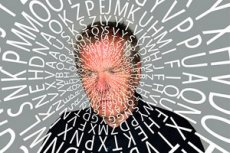Medical expert of the article
New publications
Symptoms of Alzheimer's disease
Last reviewed: 04.07.2025

All iLive content is medically reviewed or fact checked to ensure as much factual accuracy as possible.
We have strict sourcing guidelines and only link to reputable media sites, academic research institutions and, whenever possible, medically peer reviewed studies. Note that the numbers in parentheses ([1], [2], etc.) are clickable links to these studies.
If you feel that any of our content is inaccurate, out-of-date, or otherwise questionable, please select it and press Ctrl + Enter.

Alzheimer's disease is a rare pathology characterized by a progressive decline in intelligence. Most often, the disease occurs at an older age, however, there are cases of dementia developing at a relatively young age, fortunately, this is an extremely rare form. Read about the causes of the disease in this article.
The course of the disease is usually individual for each patient, however, there are a number of the most common symptoms by which one can judge the development of Alzheimer's disease.
Early Alzheimer's Disease Symptoms
The first symptoms are often confused with age-related changes that the brain undergoes over time or the influence of stressful situations on the general condition of the human body. At an early stage, a pronounced memory disorder is noted, over time, irritability, confusion, aggressiveness, frequent and often inexplicable mood swings, problems with diction appear.
Alzheimer's Symptoms in Women
According to the results of long-term observations, experts have come to the conclusion that Alzheimer's disease is much more common in women than in men, this ratio is 2:1. The disease is accompanied by both a decrease in intellectual abilities and personality disorders, behavioral changes. Women with severe dementia are characterized by more withdrawn behavior, they become tearful, with frequent unreasonable mood swings. In addition, women, more often than men, become obsessed with some manic ideas, begin to collect various small things, as a rule, things that no one needs. Care for such patients should be much more thorough and more reverent, in order to avoid the development of another depression or nervous breakdown.
Alzheimer's Symptoms in Men
A man has always been considered a support, a breadwinner and a provider, and when a disease like Alzheimer's lies in wait for him, the world around him begins to collapse. Symptomatically, dementia in men manifests itself in the form of pronounced personality disorders and behavioral habits. The patient becomes more aggressive, embittered, and unrestrained. Against the background of such manifestations of the disease in a man, it is more difficult to detect at the early stages, since many can attribute such behavior to character.
Symptoms of Alzheimer's Disease in Children
Despite the fact that dementia is a pathology that most often occurs in older people, the disease also develops in children, mainly against the background of other hereditary diseases associated with the functioning of the brain. The development of the disease is accompanied by the same symptoms as in adulthood: memory impairment and practical skills, confusion, severe irritability, aggressiveness, against this background, the level of learning ability is significantly reduced.
Symptoms of late stage Alzheimer's disease
The last, one of the most severe stages, is characterized by the patient's complete dependence on others. Against the background of progressive pathology, rapid loss of muscle mass and tongue retraction are observed, which makes it difficult to pronounce articulate words. Patients with Alzheimer's in the last stage are unable to get out of bed on their own, self-care is completely excluded, the same applies to eating. In addition to physical changes, the psychological state of the patient suffers - pronounced aggressiveness, apathy, memory lapses of both long and short periods of time. A fatal outcome occurs due to the addition of secondary pathology.
Diagnosis of Alzheimer's disease
Unfortunately, there is no single test today whose results can accurately indicate the development of Alzheimer's disease. Diagnosis of the disease should be comprehensive, including life history, family history, neurological diagnostics, cognitive tests to assess the state of memory and thinking in general, blood tests and neuroimaging.


 [
[